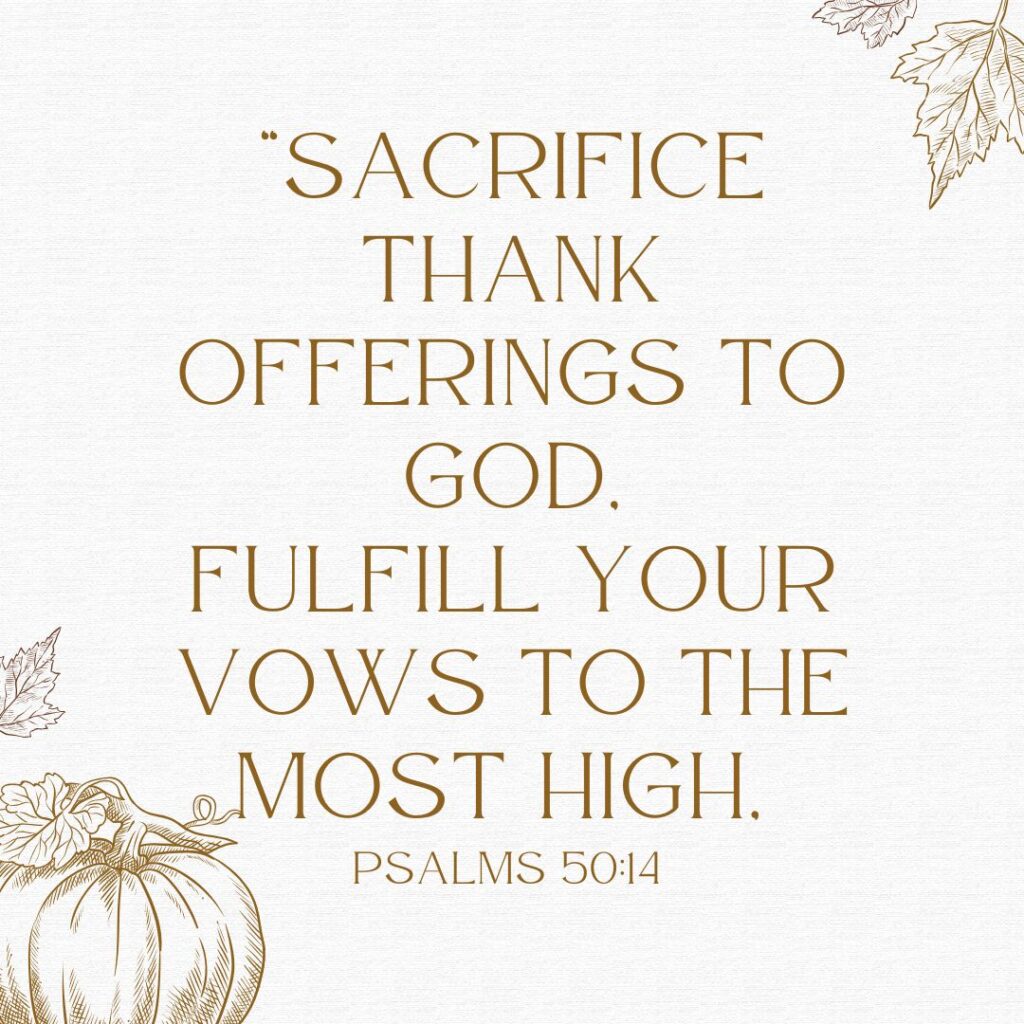Two-minute read.

“Sacrifice thank offerings to God, fulfill your vows to the Most High,
Psalms 50:14
In Leviticus, chapter 7 outlines the peace offering, which the Israelites used for one of three reasons: making a vow, as a free-will offering, or as a thank offering. Understanding the three parts of the thank offering helps us grasp the attitude God wants us to have. First, we must offer thanks to the Lord, then God’s representative, and the third part goes back to the offerer as a thanksgiving feast, which they must eat that day; no leftovers permitted.
God’s portion, the fat of the animal, went to Him alone, burned entirely up at the altar. The priest waved his portion of the offering before the Lord, receiving the choice cuts of meat; God wants his representatives to have the best part, not the leftovers. The rest of the sacrifice went to the offerer, which they ate as covenantal thanks to God for His work. Representing provision and nourishment, the feast strengthens the body to live a holy life serving the Lord.
In today’s world, we no longer do animal sacrifices, but we can learn how to prioritize our thankfulness from the Old Testament book. First, we must remember God, then His representatives in our lives that help us know the Lord better. Lastly, we must thank God for His provision that nourishes and strengthens us to serve Him with our whole hearts, mind, and body. Each day, we can offer thanks to the Lord; living with gratitude helps us serve Him and others, loving them unconditionally. The Creator takes care of His creation, and we should give thank offerings to Him.
Praise:
Praise God for His provision.
Prayer:
Lord, thank You for providing all our needs and giving us purpose in this life. Please help us live according to Your will, obey Your commands, and complete our divine mission. Receive our thank offerings for all You do.
IJNIP. Amen
